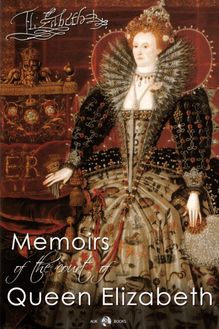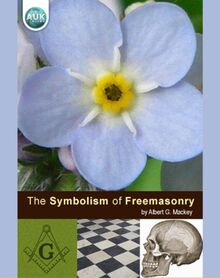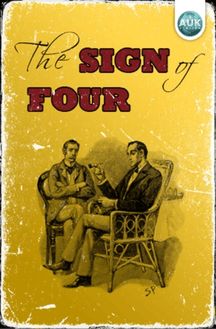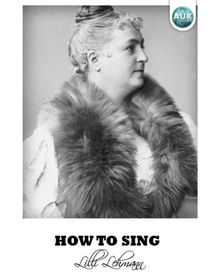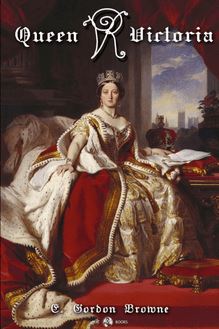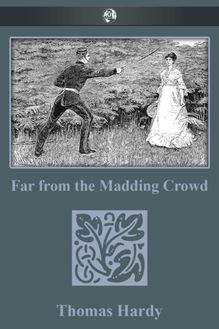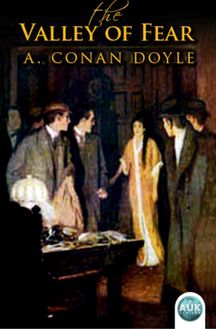-
 Univers
Univers
-
 Ebooks
Ebooks
-
 Livres audio
Livres audio
-
 Presse
Presse
-
 Podcasts
Podcasts
-
 BD
BD
-
 Documents
Documents
-
- Cours
- Révisions
- Ressources pédagogiques
- Sciences de l’éducation
- Manuels scolaires
- Langues
- Travaux de classe
- Annales de BEP
- Etudes supérieures
- Maternelle et primaire
- Fiches de lecture
- Orientation scolaire
- Méthodologie
- Corrigés de devoir
- Annales d’examens et concours
- Annales du bac
- Annales du brevet
- Rapports de stage
La lecture à portée de main

Vous pourrez modifier la taille du texte de cet ouvrage
Découvre YouScribe en t'inscrivant gratuitement
Je m'inscrisDécouvre YouScribe en t'inscrivant gratuitement
Je m'inscrisEn savoir plus
Vous pourrez modifier la taille du texte de cet ouvrage
En savoir plus

Description
Sujets
Informations
| Publié par | Andrews UK |
| Date de parution | 14 mai 2010 |
| Nombre de lectures | 0 |
| EAN13 | 9781849891172 |
| Langue | English |
Informations légales : prix de location à la page 0,0224€. Cette information est donnée uniquement à titre indicatif conformément à la législation en vigueur.
Extrait
Title Page
HENRY VIII AND HIS COURT
AN HISTORICAL NOVEL
By Louise Muhlbach
Translated From German, by H. N. Pierce
Publisher Information
Published by Andrews UK Limited 2010
www.andrewsuk.com
This digital edition, including artwork, typography and formatting is copyright Andrews UK Limited 2010.
All rights reserved. No part of this book may be copied, or transmitted in any form or by any means, electronic, electrostatic, magnetic tape, mechanical, photocopying, recording or otherwise, without the written permission of Andrews UK Limited.
Copy source material originally published in the 19th Century in Germany, translated into English by Henry Niles Pierce
CHAPTER I
CHOOSING A CONFESSOR
It was in the year 1543. King Henry the Eighth of England that day once more pronounced himself the happiest and most enviable man in his kingdom, for to-day he was once more a bridegroom, and Catharine Parr, the youthful widow of Baron Latimer, had the perilous happiness of being selected as the king's sixth consort.
Merrily chimed the bells of all the steeples of London, announcing to the people the commencement of that holy ceremony which sacredly bound Catharine Parr to the king as his sixth wife. The people, ever fond of novelty and show, crowded through the streets toward the royal palace to catch a sight of Catharine, when she appeared at her husband's side upon the balcony, to show herself to the English people as their queen, and to receive their homage in return.
Surely it was a proud and lofty success for the widow of a petty baron to become the lawful wife of the King of England, and to wear upon her brow a royal crown! But yet Catharine Parr's heart was moved with a strange fear, her cheeks were pale and cold, and before the altar her closely compressed lips scarcely had the power to part, and pronounce the binding "I will."
At last the sacred ceremony was completed. The two spiritual dignitaries, Gardiner, bishop of Winchester, and Cranmer, archbishop of Canterbury, then, in accordance with court etiquette, led the young bride into her apartments, in order to bless them, and once more to pray with her, before the worldly festivities should begin.
Catharine, however, pale and agitated, had yet sustained her part in the various ceremonies of the day with a true queenly bearing and dignity; and, as now with head proudly erect and firm step, she walked with a bishop at either side through the splendid apartments, no one suspected how heavy a burden weighed upon her heart, and what baleful voices were whispering in her breast.
Followed by her new court, she had traversed with her companions the state apartments, and now reached the inner rooms. Here, according to the etiquette of the time, she must dismiss her court, and only the two bishops and her ladies of honor were permitted to accompany the queen into the drawing-room. But farther than this chamber even the bishops themselves might not follow her. The king himself had written down the order for the day, and he who swerved from this order in the most insignificant point would have been proclaimed guilty of high treason, and perhaps have been led out to death.
Catharine, therefore, turned with a languid smile to the two high ecclesiastics, and requested them to await here her summons. Then beckoning to her ladies of honor, she withdrew into her boudoir.
The two bishops remained by themselves in the drawing-room. The circumstance of their being alone seemed to impress them both alike and unpleasantly; for a dark scowl gathered on the brows of both, and they withdrew, as if at a concerted signal, to the opposite sides of the spacious apartment.
A long pause ensued. Nothing was heard save the regular ticking of a large clock of rare workmanship which stood over the fireplace, and from the street afar off, the rejoicing of the people, who surged toward the palace like a roaring sea.
Gardiner had stepped to the window, and was looking up with his peculiar dark smile at the clouds which, driven by the tempest, were sweeping across the heavens.
Cranmer stood by the wall on the opposite side, and sunk in sad thoughts, was contemplating a large portrait of Henry the Eighth, the masterly production of Holbein. As he gazed on that countenance, indicative at once of so much dignity and so much ferocity; as he contemplated those eyes which shone with such gloomy severity, those lips on which was a smile at once voluptuous and fierce, there came over him a feeling of deep sympathy with the young woman whom he had that day devoted to such splendid misery. He reflected that he had, in like manner, already conducted two wives of the king to the marriage altar, and had blessed their union. But he reflected, too, that he had also, afterward, attended both these queens when they ascended the scaffold.
How easily might this pitiable young wife of the king fall a victim to the same dark fate! How easily might Catharine Parr, like Anne Boleyn and Catharine Howard, purchase her short-lived glory with an ignominious death! At any time an inconsiderate word, a look, a smile, might be her ruin. For the king's choler and jealousy were incalculable, and, to his cruelty, no punishment seemed too severe for those by whom he fancied himself injured.
Such were the thoughts which occupied Bishop Cranmer. They softened him, and caused the dark wrinkles to disappear from his brow.
He now smiled to himself at the ill-humor which he had felt shortly before, and upbraided himself for having been so little mindful of his holy calling, and for having exhibited so little readiness to meet his enemy in a conciliating spirit.
For Gardiner was his enemy; that Cranmer very well knew. Gardiner had often enough showed him this by his deeds, as he had also taken pains by his words to assure him of his friendship.
But even if Gardiner hated him, it did not therefore follow that Cranmer was obliged to return that hatred; that he should denominate him his enemy, whom he, in virtue of their mutual high calling, was bound to honor and love as his brother.
The noble Cranmer was, therefore, ashamed of his momentary ill-humor. A gentle smile lighted up his peaceful countenance. With an air at once dignified and friendly, he crossed the room and approached the Bishop of Winchester.
Lord Gardiner turned toward him with morose looks, and, without advancing from the embrasure of the window in which he was standing, waited for Cranmer to advance to him. As he looked into that noble, smiling countenance, he had a feeling as if he must raise his fist and dash it into the face of this man, who had the boldness to wish to be his equal, and to contend with him for fame and honor.
But he reflected in good time that Cranmer was still the king's favorite, and therefore he must proceed to work against him with great caution.
So he forced these fierce thoughts back into his heart, and let his face again assume its wonted grave and impenetrable expression.
Cranmer now stood close before him, and his bright, beaming eye was fixed upon Gardiner's sullen countenance.
"I come to your highness," said Cranmer, in his gentle, pleasant voice, "to say to you that I wish with my whole heart the queen may choose you for her confessor and spiritual director, and to assure you that, should this be the case, there will not be in my soul, on that account, the least rancor, or the slightest dissatisfaction. I shall fully comprehend it, if her majesty chooses the distinguished and eminent Bishop of Winchester as her confessor, and the esteem and admiration which I entertain for you can only be enhanced thereby. In confirmation of this, permit me to offer you my hand." He presented his hand to Gardiner, who, however, took it reluctantly and but for a moment.
"Your highness is very noble, and at the same time a very subtle diplomatist, for you only wish in an adroit and ingenious way to give me to understand how I am to act should the queen choose you for her spiritual director. But that she will do so, you know as well as I. It is, therefore, for me only a humiliation which etiquette imposes when she compels me to stand here and wait to see whether I shall be chosen, or contemptuously thrust aside."
"Why will you look at matters in so unfriendly a light?" said Cranmer, gently. "Wherefore will you consider it a mark of contempt, if you are not chosen to an office to which, indeed, neither merit nor worthiness can call us, but only the personal confidence of a young woman?"
"Oh! you admit that I shall not be chosen?" cried Gardiner, with a malicious smile.
"I have already told you that I am wholly uninformed as to the queen's wish, and I think it is known that the Bishop of Canterbury is wont to speak the truth."
"Certainly that is known, but it is known also that Catharine Parr was a warm admirer of the Bishop of Canterbury; and now that she has gained her end and become queen, she will make it her duty to show her gratitude to him."
"You would by that insinuate that I have made her queen. But I assure your highness, that here also, as in so many other matters which relate to myself, you are falsely informed."
"Possibly!" said Gardiner, coldly. "At any rate, it is certain that the young queen is an ardent advocate of the abominable new doctrine which, like the plague, has spread itself from Germany over all Europe and scattered mischief and ruin through all Christendom. Yes, Catharine Parr, the present queen, leans to that heretic against whom the Holy Father at Rome has hurled his crushing anathema. She is an adherent of the Reformation."
"You forget," said Cranmer, with an arch smile, "that this anathema was hurled against the head of our king also, and that it has shown itself equally ineffectu
Attention
En entrant sur cette page, vous certifiez :
- 1. avoir atteint l'âge légal de majorité de votre pays de résidence.
- 2. avoir pris connaissance du caractère érotique de ce document.
- 3. vous engager à ne pas diffuser le contenu de ce document.
- 4. consulter ce document à titre purement personnel en n'impliquant aucune société ou organisme d'État.
- 5. vous engager à mettre en oeuvre tous les moyens existants à ce jour pour empêcher n'importe quel mineur d'accéder à ce document.
- 6. déclarer n'être choqué(e) par aucun type de sexualité.
YouScribe ne pourra pas être tenu responsable en cas de non-respect des points précédemment énumérés. Bonne lecture !
-
 Univers
Univers
-
 Ebooks
Ebooks
-
 Livres audio
Livres audio
-
 Presse
Presse
-
 Podcasts
Podcasts
-
 BD
BD
-
 Documents
Documents
-
Jeunesse
-
Littérature
-
Ressources professionnelles
-
Santé et bien-être
-
Savoirs
-
Education
-
Loisirs et hobbies
-
Art, musique et cinéma
-
Actualité et débat de société
-
Jeunesse
-
Littérature
-
Ressources professionnelles
-
Santé et bien-être
-
Savoirs
-
Education
-
Loisirs et hobbies
-
Art, musique et cinéma
-
Actualité et débat de société
-
Actualités
-
Lifestyle
-
Presse jeunesse
-
Presse professionnelle
-
Pratique
-
Presse sportive
-
Presse internationale
-
Culture & Médias
-
Action et Aventures
-
Science-fiction et Fantasy
-
Société
-
Jeunesse
-
Littérature
-
Ressources professionnelles
-
Santé et bien-être
-
Savoirs
-
Education
-
Loisirs et hobbies
-
Art, musique et cinéma
-
Actualité et débat de société
- Cours
- Révisions
- Ressources pédagogiques
- Sciences de l’éducation
- Manuels scolaires
- Langues
- Travaux de classe
- Annales de BEP
- Etudes supérieures
- Maternelle et primaire
- Fiches de lecture
- Orientation scolaire
- Méthodologie
- Corrigés de devoir
- Annales d’examens et concours
- Annales du bac
- Annales du brevet
- Rapports de stage

